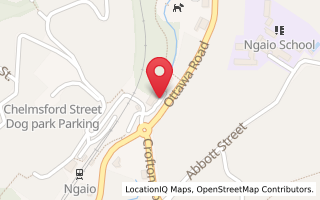Centre Programme
Our programme provides opportunities for learning experiences that are based on children’s interests, both as individuals and as a group. Te Whāriki, the Early Childhood Curriculum is the base for our centre programme. We follow the children’s interests and support the diverse learning pathways that come through in play. Our programme planning is displayed in the centre for parents and children to view.
Each child’s learning is assessed on a regular basis and documented in their online portfolio. We use Storypark as our documentation platform. The portfolio is a celebration of your child’s unique learning journey, their interests, strengths and achievements during their time at Ngaio Childcare Centre. The portfolio captures your child’s learning and development through observation and documentation. Information collected may include learning stories, group stories, photographs, videos, art samples and parent, whānau and child voices.
Learning stories provide a framework for teachers to notice, recognise and respond to your child’s learning outcomes. These are skills and understandings that your child has about their learning.
The Parent Voice feedback supports the partnership between home, the wider community and our centre. Connections between all enhance your child’s learning. We value the knowledge and experience you have of your child and we welcome your feedback in the Parent Voice comment section at the bottom of your child's story. We hope that you will share with us information about your child so that we can plan learning experiences that will best meet your child’s interests.
The portfolio is a collaborative approach to learning. The teachers will contribute to this portfolio regularly. You and your child are welcome to view this portfolio at any time either at the centre or in your home. Sharing this portfolio with your child on their learning and development should enhance their sense of themselves as capable and competent learners.
Daily Routine
We structure the day depending on the age range of the tamariki and their current interests and we offer a range of experiences and activities accordingly. In each session there will be some flexibility within the suggested routines outlined.
| 08:30am | Arrival | |
|
A Kaiako meets parents/caregivers at the front door. Tamariki come inside with Kaiako to |
||
| 09:30am | Tidy up before morning tea | |
| We encourage tamariki to help us look after the environment, toys and equipment when appropriate. | ||
| 09:40am | Mat time/hand washing/morning tea | |
|
Short mat time, including karakia kai. Kaiako support tamariki to wash hands, find their lunch |
||
| 10:00am | Free play | |
|
Tamariki are reintroduced into new activities set out by the Kaiako. This is also bathroom time |
||
| 11:30am | Tidy up before lunch | |
| We encourage tamariki to help us look after the environment, toys and equipment when appropriate. | ||
| 11:40am | Mat time/hand washing/lunch | |
| Short mat time, including karakia kai. Kaiako support tamariki to wash hands, find their lunch box and sit together at the table for lunch. |
||
| 12:00pm | Free play | |
| Tamariki are reintroduced into new activities set out by the Kaiako. This is also bathroom time (toileting, nappy changing, and face washing if necessary). |
||
| 01:00pm | Tidy up for end of day | |
| Kaiako encourage tamariki to start tidying up for the end of the day. | ||
| 01:15pm | Tidy up/mat time | |
|
The outside kaiako finishes tidying up outside and the rover begins to tidy up inside. All tamariki |
||
| 01:30pm | Home time | |
| Parents arrive to collect tamariki. |
*Reviewed as necessary.

